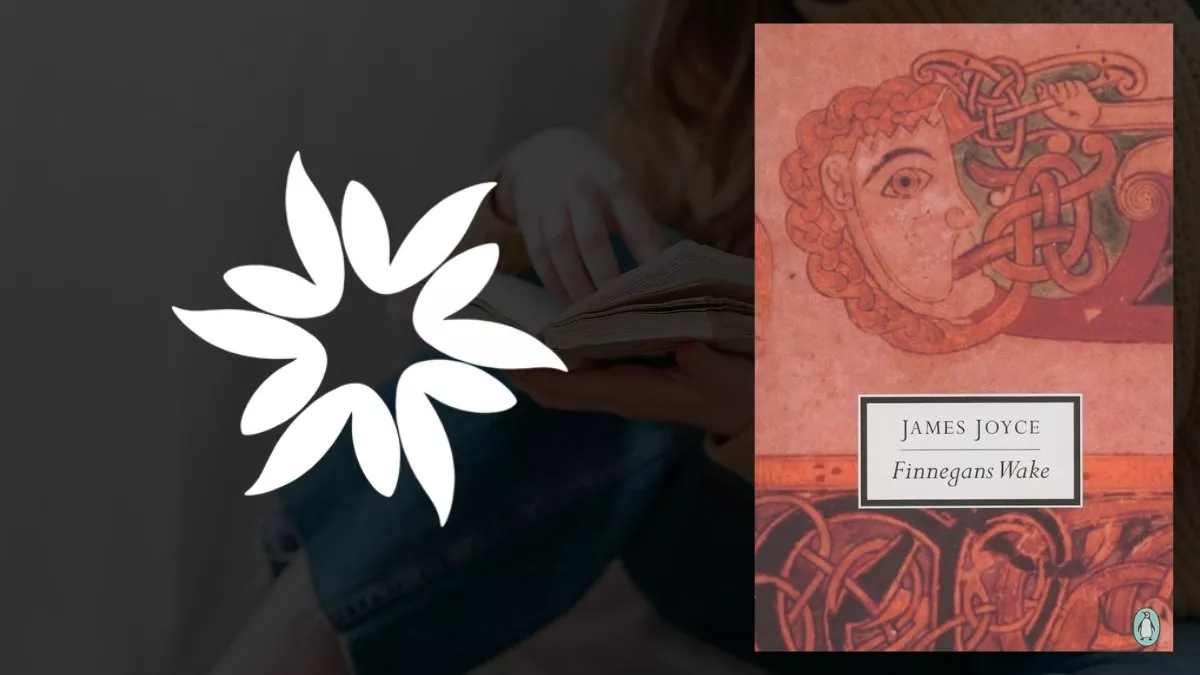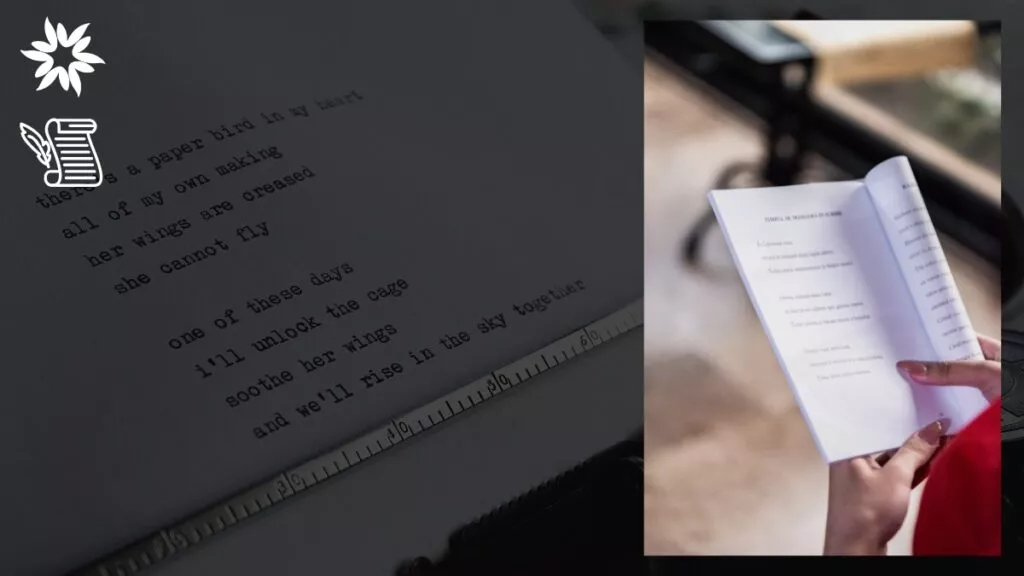
Ever been halfway through a book and wondered if your brain had just quit on you?
We’ve all been there, frantically flipping back pages, trying to figure out where the plot went or if we missed a crucial detail.
Well, if you think that’s bad, let me introduce you to a whole new level of literary brain-benders—books that are famously hard to read.
You know, the type of books that make you question your life choices, ask yourself why you’re reading them in the first place, and yet, when you finally close that last page, you feel like you’ve accomplished something massive.
Think of it as climbing Mount Everest but for your mind.
In this guide, we will walk through some of the most notoriously difficult books ever written, what makes them tough, why they’re worth the struggle, and how to tackle them without losing your sanity.
So, if you’re ready to flex your literary muscles, let’s look into some of the hardest books you’ll ever read.
Let’s start with the heavyweight champion of confusing books—James Joyce’s Finnegans Wake.
If you’ve ever opened it, you might have thought it was written in a different language.
You’re not wrong—Joyce mixes English with other languages, strange wordplay, and what seems like nonsense.
But there’s more going on here than meets the eye.
Why It’s So Hard:
Why It’s Worth It: If you go into it expecting a straightforward story, you’re in for a world of confusion. The best advice for Finnegans Wake?
Don’t try to understand every word—just feel it. Joyce himself said you should enjoy the rhythm and sound of the language.
Think of it like an abstract painting. You might not “get” every stroke, but you can still appreciate the whole thing.
The themes here—transformation, rebirth, and the complexity of the human mind—are deep.
Plus, you get some pretty intense wordplay that’s often hilarious if you’re up for deciphering it.
David Foster Wallace’s Infinite Jest is a huge book—over 1,000 pages—and it’s not just long, it’s complicated.
Packed with footnotes, some of which even have footnotes of their own, this novel can make your head spin.
It’s set in a not-too-distant future where entertainment, addiction, and society’s problems collide in a massive, confusing mess.
Why It’s So Hard:
Why It’s Worth It: Despite its complexity, Infinite Jest is funny, deep, and a mind-bending exploration of addiction, entertainment, and the way society distracts itself from existential despair.
It’s not just a book about tennis or rehab—it’s a massive, chaotic reflection of modern life.
You might feel lost for a good chunk of the book, but when the pieces start coming together, it’s like a literary lightbulb moment.
Is it worth reading? Absolutely. Just don’t expect to breeze through it. Think of it more like a puzzle that’s worth the time it takes to solve.
If you’re up for some serious philosophy, then Heidegger’s Being and Time is one of the most influential, but also one of the hardest, books you’ll ever read.
It’s about the nature of existence—what it means to “be”—and it digs deep into questions about life, time, and death.
Why It’s So Hard:
Why It’s Worth It: If you can make it through the dense prose and new vocabulary, Being and Time offers a profound meditation on life, death, and what it means to live authentically.
Heidegger basically says that we’re all “thrown” into the world with no predetermined purpose, and how we deal with that uncertainty shapes our lives.
Sure, it’s not an easy ride, but the philosophical insights are immense.
It’s one of those books that stays with you long after you’ve finished it, as you find yourself thinking about its themes in your everyday life.
P.S. If you’re also interested in life-changing reads, you can check 10 Must-Read Spiritual Books That Can Change Your Life. These books offer powerful insights and inspiration for personal growth and transformation.
Thomas Pynchon’s Gravity’s Rainbow is often called one of the most complex books ever written.
Set during World War II, it is so fragmented and full of strange digressions that following it is like trying to solve a puzzle without knowing what the picture is supposed to look like.
Why It’s So Hard:
Why It’s Worth It: Despite its difficulty, Gravity’s Rainbow is an incredibly rewarding read if you can stick with it.
At its core, it’s a novel about control—whether it’s political, technological, or psychological.
Pynchon explores themes like paranoia, entropy, and the decline of systems, all wrapped up in a darkly humorous, absurd narrative.
Yes, it’s challenging, but once you get into the rhythm, it’s an experience like no other.
You might not catch everything on the first read (or the second), but the more you invest, the more you get out of it.
William Faulkner’s The Sound and the Fury is a Southern Gothic novel that explores the downfall of the Compson family.
But what makes it tough is the way the story is told—it’s not straightforward at all.
The first section is narrated by Benjy, a mentally disabled man whose perception of time is jumbled, making it hard to follow.
Why It’s So Hard:
Why It’s Worth It: If you can get through the fractured narrative, The Sound and the Fury is a deeply emotional and powerful novel.
Faulkner’s writing is rich, and his exploration of family, loss, and the passage of time is profound.
It’s the kind of book that, when you finish it, you feel like you’ve truly earned the experience.
Franz Kafka’s The Castle is a classic of existential literature, and it’s a book that captures feelings of confusion and frustration perfectly.
The story follows a man named K. who arrives in a village ruled by a mysterious Castle, but no matter how hard he tries, he can never gain access to it.
The story is unfinished, adding to its sense of hopelessness.
Why It’s So Hard:
Why It’s Worth It: Despite the frustration (which is kind of the point), The Castle is a brilliant meditation on the absurdity of bureaucratic systems and how they dehumanize individuals.
Kafka’s writing is sharp, darkly humorous, and hauntingly prophetic about the way modern institutions operate.
You might not get closure at the end, but you’ll definitely walk away with a deeper understanding of Kafka’s bleak yet insightful view of society.
Another Faulkner novel, Absalom, Absalom! takes the difficulty of The Sound and the Fury to a whole new level.
This novel tells the story of Thomas Sutpen and his quest to build a dynasty in the American South, but it’s told in a way that’s fragmented and full of long, complex sentences.
Why It’s So Hard:
Why It’s Worth It: Though it’s challenging, Absalom, Absalom! is a deep and powerful exploration of race, identity, and the legacy of slavery in the South.
Faulkner’s complex narrative structure mirrors the complexity of the history he’s exploring, and while it’s a difficult read, it’s also incredibly rewarding for those who stick with it.
Nightwood by Djuna Barnes is a modernist novel that explores themes of gender, sexuality, and identity.
Set mostly in 1920s Paris, it’s a lyrical and fragmented story about the emotional struggles of a group of outcasts, but its unusual style makes it a tough read.
Why It’s So Hard:
Why It’s Worth It: Nightwood is one of the earliest novels to explore LGBTQ+ themes openly, and Barnes’s portrayal of love and identity is raw, emotional, and ahead of its time.
Though it’s difficult, the book’s beauty lies in its language and its willingness to explore complex human emotions.
Leo Tolstoy’s War and Peace is one of the longest and most detailed books ever written, and it’s often considered a masterpiece of world literature.
Set during the Napoleonic Wars, it follows a huge cast of characters as they navigate life, love, and war in Russia.
Why It’s So Hard:
Why It’s Worth It: Despite its length, War and Peace is a brilliant exploration of life, love, and war, and it offers some of the most beautiful writing you’ll ever read.
The characters feel incredibly real, and Tolstoy’s insights into human nature are timeless.
It’s a challenge, but if you can get through it, you’ll have experienced one of the greatest books ever written.
Dante Alighieri’s The Divine Comedy: Inferno (completed in the early 14th century) is an absolute classic—one of the most famous works of world literature.
But make no mistake, just because it’s well-known doesn’t mean it’s easy. Inferno has symbolism, theological references, and allegorical meaning that can leave you scratching your head.
Why It’s So Hard:
Why It’s Worth It: Though challenging, Inferno is a powerful story about sin, justice, and the human condition.
Dante’s journey through Hell is both a literal adventure and a metaphor for the soul’s journey toward redemption.
The poem’s vivid imagery and moral depth make it a rewarding read, especially for those interested in theology and philosophy.
So, there you have it—ten of the most challenging books in literary history.
Each one of these works pushes the boundaries of storytelling, whether through complex narrative structures, deep philosophical themes, or experimental writing styles.
Are they hard to read? Absolutely. But they’re also incredibly rewarding.
These books offer more than just stories—they provide insight into human nature, society, and the way we interact with the world around us.
They challenge us to think, to reflect, and to engage with literature on a deeper level.
So, if you’re up for the challenge, grab a copy of one of these literary beasts, settle in, and prepare for an unforgettable reading experience.
It won’t be easy, but trust me, it’ll be worth it.

Everyone has days when the world feels a little heavier than usual. But for those grappling with depression, that weight…

If you’re a fan of A Court of Thorns and Roses (ACOTAR), you’ve probably been eagerly waiting for the next…

There’s something truly special about immersing yourself in a great book, wouldn’t you agree? Undoubtedly, it’s an escape, an adventure,…